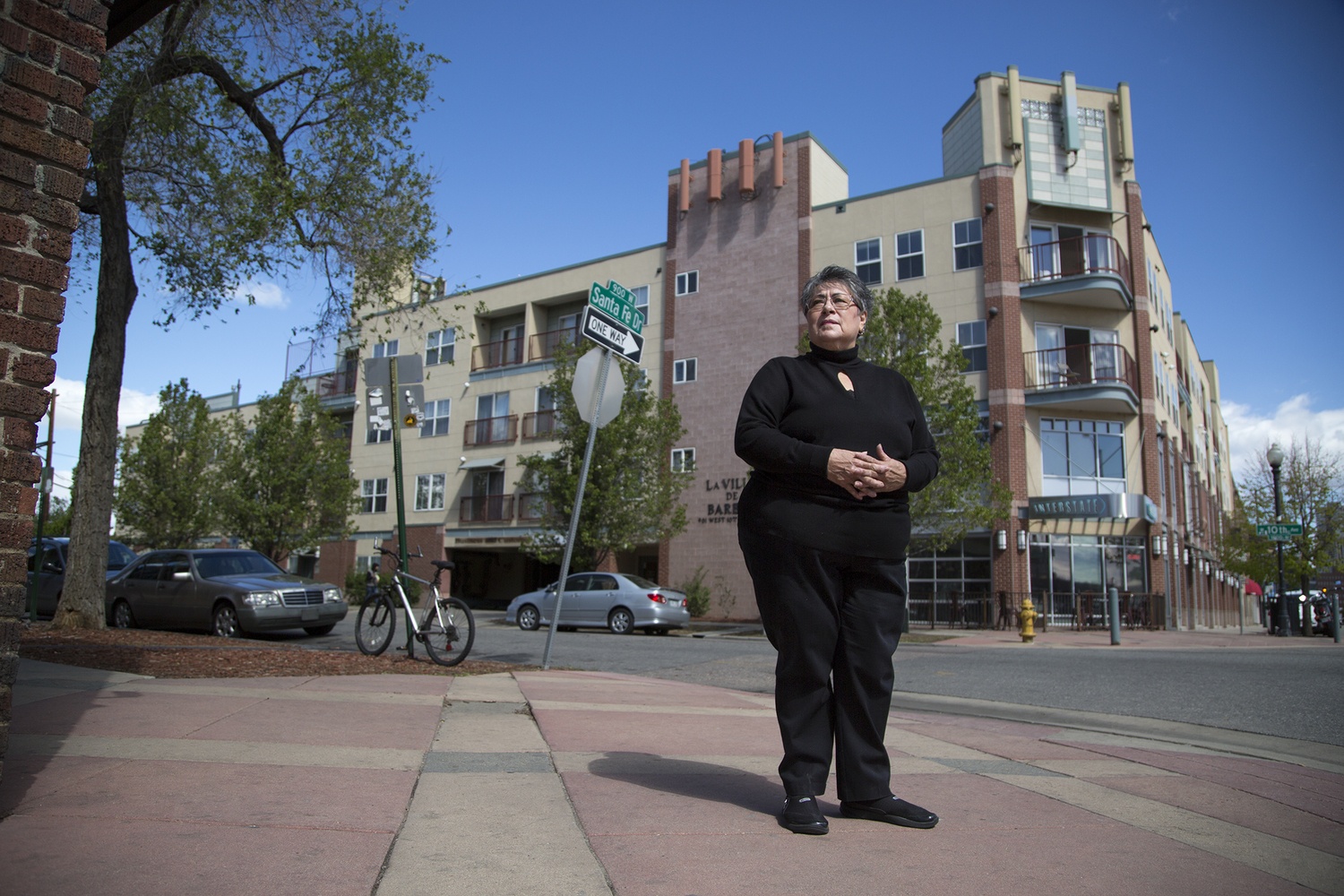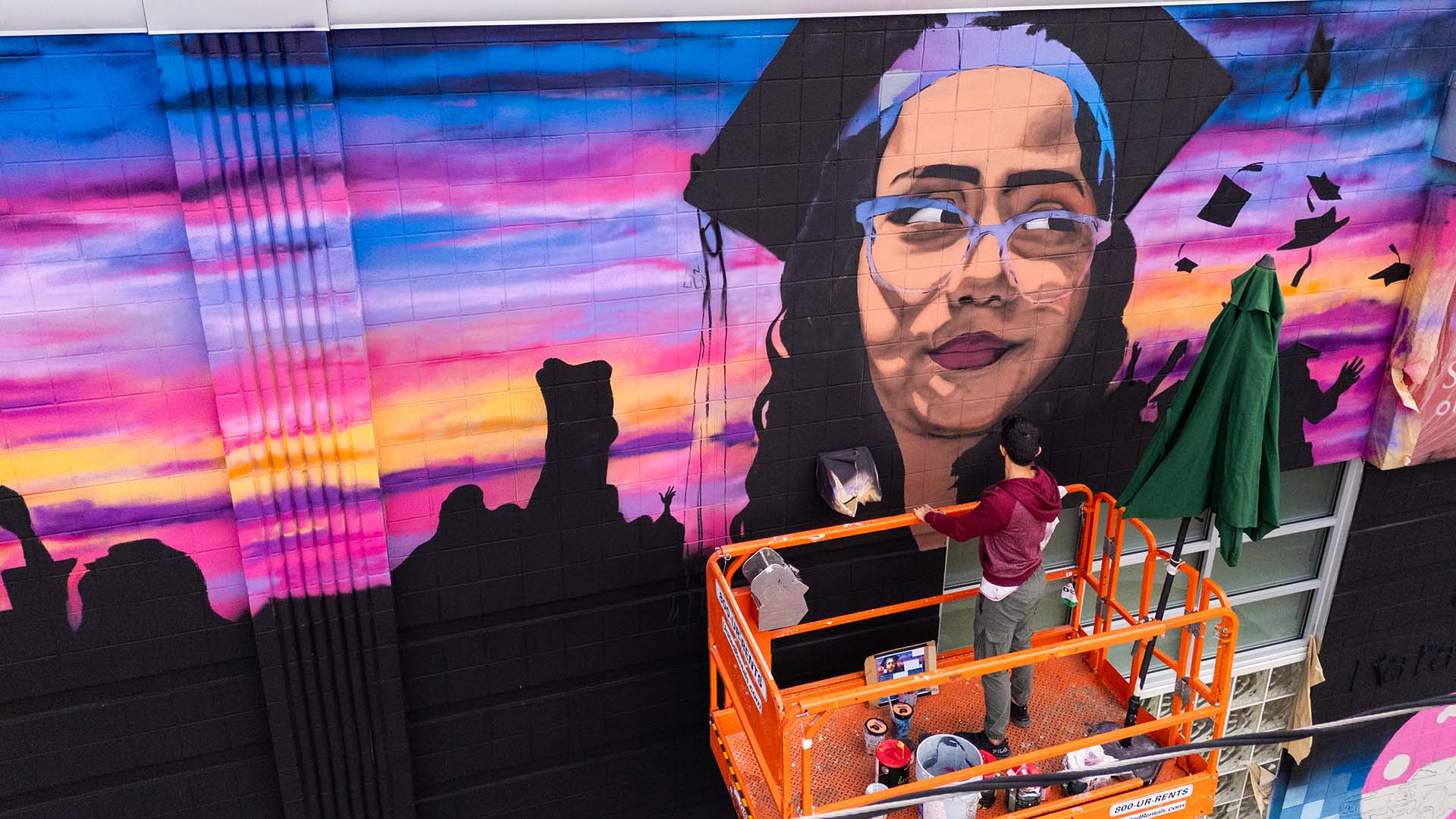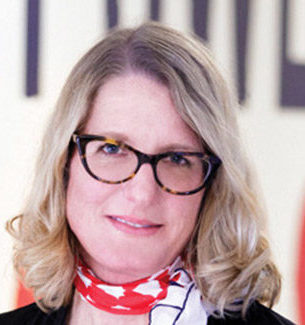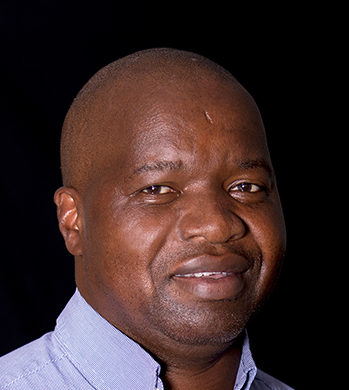Paving the road home
Veronica Barela is tough. She’s determined. And as a savvy community-builder, she knows how to get things done.

In other words, she’s a Roadrunner.
With the annual Cinco de Mayo Festival marking its 30th anniversary this year, the city of Denver kicks off a festival season with live music, dancing and celebration of Mexicano culture.
Revived in the late 1980s by Veronica Barela, CEO and president of the NEWSED Community Development Corporation, the MSU Denver-sponsored event quickly outgrew its original location on the corner of 11th Avenue and Santa Fe Drive. The festival currently spans two days, and at its current home at Civic Center Park, it regularly gathers upwards of 300,000 attendees. Barela noted the impact of this congregation of creativity and Latinx identity.
“Art has been extremely important in building community,” she said “This event gives us something to culturally hang our hats on – and we want to share that with the public,” she said.
Hardship into leadership
The festival’s success is just one example of a lifetime of service to a community. To fully grasp Barela’s accomplishments as a leader, however, requires understanding her own story of persistence and empowerment.
Born in the North Lincoln Park housing projects at 14th Avenue and Navajo Street, she loved growing up in the community she’s helped build for more than four decades. And though there were hardships, she credits the experience for forging her vision of leadership today.

Now known for her fierce advocacy work, she’s committed to the same mission of access and place-based transformation as is her alma mater, MSU Denver.
“Growing up poor, I learned to appreciate what I did have and not to waste time on things that don’t matter,” said Barela. “It made me really care about helping people get out of poverty.”
Investing in culture
Barela’s economic and civic engagement serves as testament to the power of uniting a neighborhood. As a west Denver activist for decades, she recalled how NEWSED’s entry into housing issues kicked off with advocating for displaced populations, starting in the 1980s (the expansion of gentrification, which has triggered soaring home prices, continues to this day).
“The home ownership rate then was 16 percent – that was unacceptable,” said Barela. “We had to do something to bring middle income back into the community.”
That was the impetus for a massive revitalization effort: Grants paved the way for a streetscape, tree planting and painting that helped kick off the redevelopment of Santa Fe Drive. Capped with retail growth like the Zocalo plaza across from the Auraria campus and attracting the largest King Soopers grocery store in the state, the formerly boarded-up thoroughfare began attracting artists.
Today, the area is magnet for arts and culture in the Rocky Mountain region. The Art District on Santa Fe’s monthly First Friday Art Walks regularly draw upwards of 15,000 attendees during peak seasons.
But transformation doesn’t happen overnight, of course.
Feet on the ground
Building that community takes a strong foundation – and for Barela, it meant finding an educational fit locally.
Though her first foray into higher education was cut short after racial intimidation at another institution, she decided to enroll as a Roadrunner, familiar with what was then Metropolitan State College as the school her brother and sister graduated from.
“There wasn’t a single professor I didn’t like – and if we encountered racism, there were people around to help process and do something about it,” said Barela. “The difference was like night and day.”
This involved applied practice that challenged her initial plan of going to law school and set the stage for her professional career. Barela credits late faculty member Bob Clifton for helping her find a path into nonprofit leadership after graduating in 1977 with a double-major in psychology and public management and a minor in Chicana/o studies.
Another key difference she noted: the reputation for creating workforce-ready students. According to Barela, employers hire MSU Denver graduates because “…we’re working people – we have our feet on the ground.”
Having feet on the ground is what’s led to NEWSED’s enduring impact over the decades. Empowering a community takes education, effort and hard work to transform from within.
For Barela, though, it’s more than this – it’s paving a road home.
“I loved MSU Denver; it’s the best training I could have had,” she said. “I’m so proud to be a Roadrunner.”







